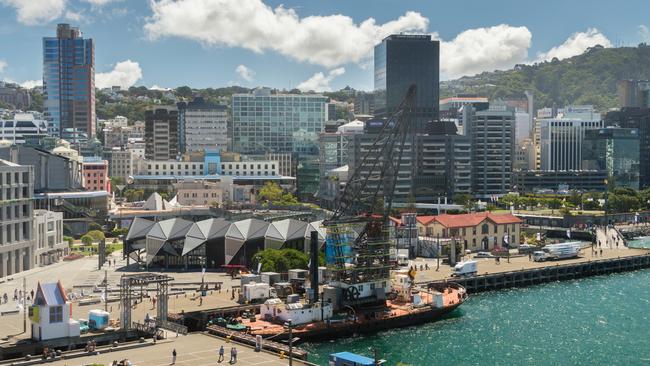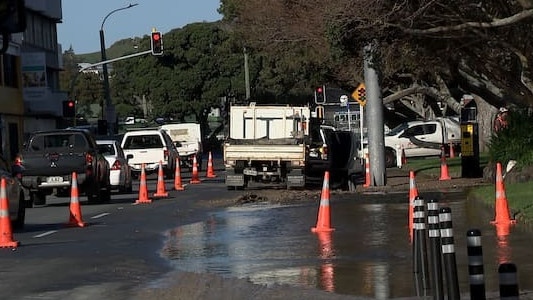
Here in the New Zealand capital, the streets have been notably wet with the stuff. Unfortunately for Wellington, a city of 220,000 souls, the water isn’t so much cascading from the skies as it has been gushing out on to the streets from cracked piping below.
The city is in the midst of a water crisis, and not just in respect of the giant paddling pool created by tens of millions of litres of water flowing out of seemingly ubiquitous cracked piping. An estimated 100km of pipes need to be replaced annually yet only 9 kms of them are forecast to be renewed this coming year.
As a consequence, Wellington is losing 44 per cent of its drinking water through those leaky pipes at a time when other aspects of its management of storm and waste water are also under renewed scrutiny.
Nor is it the only part of the country experiencing these issues. An estimated one in every 180 Kiwis, or 34,000 locals, get sick each year from drinking water that doesn’t meet international standards. The nation as a whole has a “massive water infrastructure deficit,” according to the government agency, Infrastructure New Zealand, which monitors the issues of water and water-management problems.

Wellington is the outlier, however, and here memories are still fresh from earlier in the year of residents having to queue for emergency water tanks (which sold out in hours). With summer still more than a month away, water restrictions have already taken effect across the city — the use of sprinklers, for instance, is now limited to every second day, even at a time when the region has been experiencing big late-winter rainfalls.
In order to stave off the promise of another hot and ultra-dry season, water pressure has also been reduced in three Wellington suburbs to try and stop new leaks forming and reduce water use by as much as 300,000 litres a day.
“We lose 40-50 per cent of our water supply to leaks from mismanagement,” fumed one online critic, “and yet we are the ones who are told we need to conserve the water.”
As the water pressure levels decrease, political pressures have only ramped up with water services shaping up to be the biggest headaches for the National-led government of Prime Minister Christopher Luxon. Luxon may have inherited the problem — variously blamed on municipal mismanagement, residue earthquake damage, or little or no investment over the decades from central government — but his administration has also made much of its intention to fix the problem.
National campaigned on having councils maintain control of water assets, but also shouldering most of the financial burden of upgrading and repairing the water infrastructure.
But at what cost? With anything up to an estimated $185 billion in public funds required over the next 30 years to improve the state of the nation’s “three waters” (drinking water, waste water and storm water), the capital required to fix the problem is, so to speak, eye-watering. The government’s tentative answer is a policy called Local Water Done Well.
Various pieces of legislation having to do with the issue are being rolled out for the grand plan, which will have a bigger role for local municipalities, long-term loans from the central government and involves none of the “co-governance” aspects — the idea that Māori tribes would have a 50 per cent vote on new proposals — that politically stymied the Labour approach.
Still, most local authorities around the country have their own fiscal problems and it’s not yet entirely clear who gets to foot the ultimate bill and how the proposed solution won’t result in massive hikes in local council rates.
The government remains upbeat about its long-term vision for well-managed water as a critical enabler of innovation, sustainability, and economic productivity.
“These changes will ensure water revenues are ring fenced for water services and aren’t siphoned off for other council priorities or pet projects, with little transparency for the ratepayer. Commerce and Consumer Affairs Minister Andrew Bayly says.
As the political heartland braces for another sodden summer, the hope must be that this isn’t just a wet promise.






Kiwis love their abundance of water — it courses through the country’s best poetry and prose, and even supplied the title of one of their best films from earlier in the century, Rain. Right now, however, it could do with monumental clean-up.